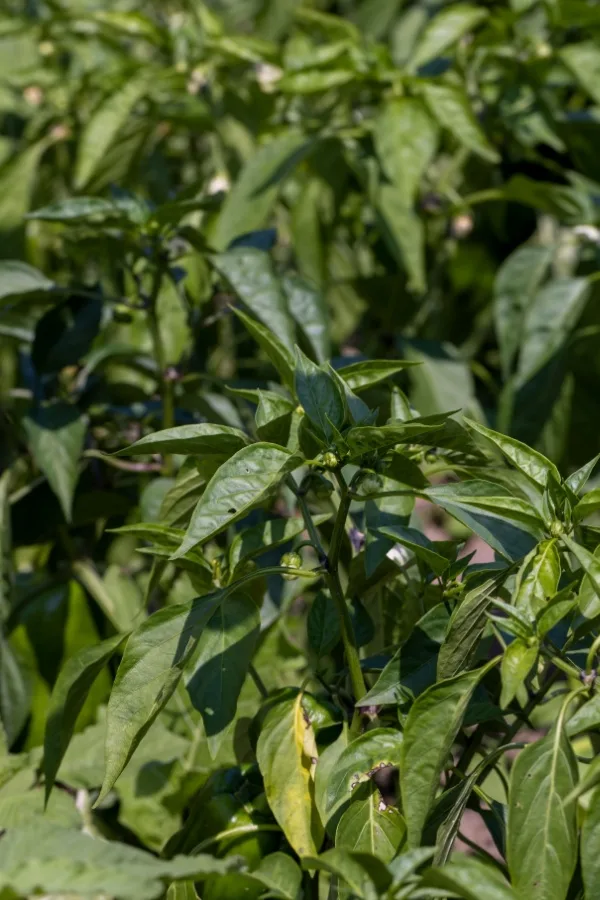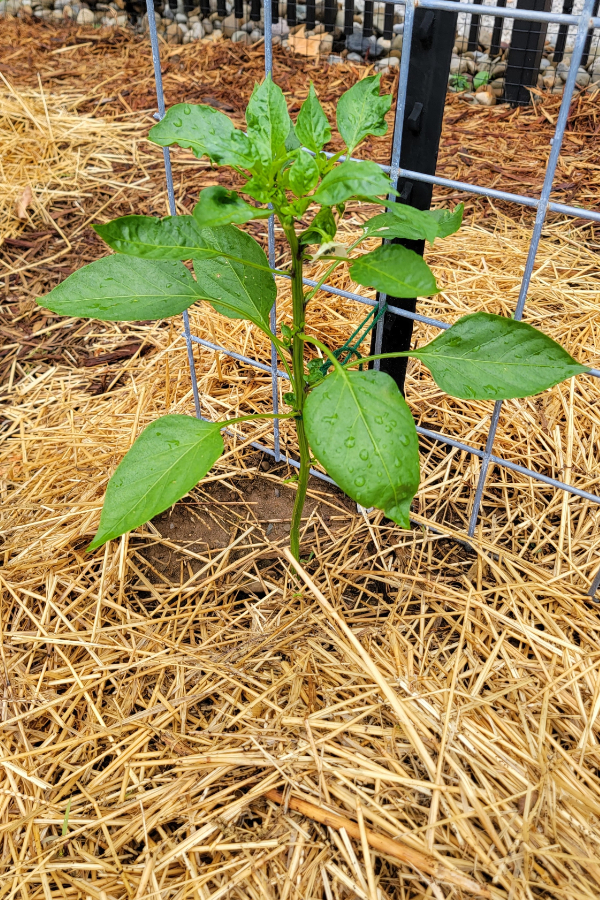Selecting the Best Fertilizers for Peppers: Professional Recommendations
Selecting the Best Fertilizers for Peppers: Professional Recommendations
Blog Article
Organic Vs. Synthetic Fertilizers: Which Is Best for Nurturing Healthy And Balanced Pepper Plants?
In the world of nurturing healthy pepper plants, the selection in between organic and artificial fertilizers stands as a crucial choice with far-ranging ramifications. While both alternatives goal to supply vital nutrients to support plant development, the nuances of their impact on the soil, plant health, and the setting stimulate a debate that mirrors throughout the gardening area. Comprehending the distinct benefits and prospective challenges of each plant food kind is vital for pepper growers looking for to enhance their returns while maintaining a lasting and eco-conscious strategy.
Benefits of Organic Plant Foods
Organic fertilizers supply a sustainable and environmentally-friendly approach to beneficial pepper plants, providing necessary nutrients without the use of artificial chemicals. These natural fertilizers are acquired from organic resources such as garden compost, manure, bone meal, and algae, advertising soil wellness and biodiversity. Unlike synthetic fertilizers, natural options release nutrients gradually, ensuring a consistent and well balanced supply for pepper plants to thrive.
One considerable advantage of organic plant foods is their capacity to improve soil framework and water retention. By boosting soil health and wellness, natural plant foods promote useful microbial task, which aids in nutrient uptake by pepper plants. Furthermore, natural plant foods decrease the danger of chemical run-off, shielding water sources from pollution and securing the setting.
Furthermore, organic fertilizers add to lasting soil fertility by promoting the growth of helpful dirt microorganisms. These organisms assist damage down raw material, launching nutrients in a kind that is conveniently accessible to pepper plants. best fertilizers for peppers. By promoting a healthy and balanced dirt environment, natural fertilizers support lasting pepper farming practices that benefit both plants and the environment
Drawbacks of Synthetic Fertilizers
Artificial plant foods, in comparison to their organic counterparts, pose various disadvantages when used to nurture pepper plants, influencing both plant wellness and ecological sustainability. One significant disadvantage of synthetic fertilizers is their propensity to seep nutrients from the dirt rapidly. This rapid leaching can lead to nutrient imbalances in the dirt, triggering plants to experience from poisonings or shortages. Furthermore, synthetic plant foods can hurt helpful soil organisms, such as earthworms and beneficial microorganisms, interfering with the soil ecosystem's equilibrium.
Furthermore, the overuse of artificial fertilizers can add to water contamination. Excess fertilizers not taken in by plants can remove right into water bodies, resulting in eutrophication, where algae blossoms deplete oxygen degrees in the water, harming marine life. Synthetic fertilizers are commonly obtained from non-renewable sources, such as fossil fuels, contributing to carbon exhausts and environmental deterioration throughout their production.
Nutrient Absorption Comparison
When comparing natural and artificial plant foods in terms of nutrient absorption, natural plant foods have great site the benefit of providing a more balanced and slow-release source of nutrients. Organic fertilizers include a range of macro and micronutrients that are not only useful for the plants however additionally advertise healthy and balanced dirt microbial activity, which helps in nutrient uptake.
Moreover, natural fertilizers enhance soil structure and water retention capacity, permitting pepper plants to gain access to nutrients much more efficiently. This improved soil top quality promotes origin advancement, enabling much better nutrient absorption. Artificial plant foods, although initially improving plant growth due to their high nutrient concentrations, might prevent long-lasting nutrient absorption by degrading soil health with time.
Ecological Effect Considerations

On the various other hand, synthetic plant foods, although commonly more quickly offered and focused to plants, can have damaging effects on the atmosphere otherwise applied effectively (best fertilizers for peppers). Their production calls for high energy inputs, bring about greenhouse gas discharges and adding to climate adjustment. Additionally, the runoff of excess artificial plant foods can contaminate water resources, resulting in eutrophication and damaging water ecosystems.
Best Fertilizer Practices for Peppers
When feeding pepper plants, optimizing nutrient uptake and minimizing environmental influence are essential factors to consider. To accomplish this, it is necessary to follow finest plant food methods customized to the details requirements of pepper plants. One important method is to do a dirt examination prior to using any fertilizers. This test can identify the pH level of the soil and identify any nutrient shortages, guiding you in selecting the most ideal plant food solution.
One more crucial method is to fertilize pepper plants at the correct time. Typically, peppers profit from receiving fertilizer at planting and after that once more when they begin to flower. Over-fertilizing can bring about nutrient inequalities and damage the plants, so it is essential to comply with suggested application rates.
Furthermore, choosing a balanced plant food with an NPK ratio that fits pepper plants' requirements is essential. Inevitably, internet combining synthetic and organic plant foods sensibly can assist support healthy pepper plants while lessening ecological impact.
Final Thought

Organic fertilizers use an environmentally-friendly and sustainable method to beneficial pepper plants, giving essential nutrients without the use of synthetic chemicals. Unlike synthetic fertilizers, natural alternatives launch nutrients slowly, guaranteeing a well balanced and steady supply for pepper plants to thrive.
Synthetic fertilizers, in contrast to their organic counterparts, present numerous disadvantages when used to nourish pepper plants, impacting both plant health and environmental sustainability. When comparing organic and synthetic fertilizers in terms of nutrient absorption, organic fertilizers have the advantage of providing a more balanced and slow-release source of nutrients.Furthermore, organic plant foods boost soil framework and water retention capacity, enabling pepper plants to accessibility nutrients much more successfully.
Report this page